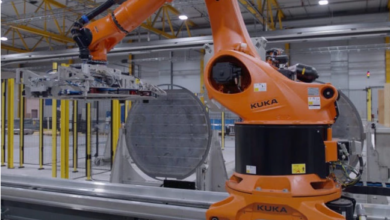Johnson Matthey to supply technology to Chile’s Haru Oni project
The Haru Oni pilot project is expected to come online by 2022, with full-scale production starting by 2026.

Johnson Matthey (JM), a British UK speciality chemicals and technology company, will supply its technologies, equipment and advisory services to the world’s first methanol plant powered by wind energy- the Haru Oni project, located in Patagonia, Chile.
JM will license methanol technology and supply the engineering, catalyst and equipment for the Haru Oni project. The unit will capture atmospheric CO2 through a direct capture process and use it as feedstock for making e-methanol. Hydrogen will be produced through electrolysis process using Proton exchange membrane (PEM) technology.
John Gordon, Managing Director, Johnson Matthey, said, “It is the culmination of two years’ work and testament to their confidence in JM’s engineering expertise and ability to successfully design and help deliver methanol plants at all scales and feedstocks.”
The Haru Oni project, which Siemens Energy is developing in partnership with a consortium including Johnson Matthey will become the world’s first integrated and commercial large-scale plant to produce climate-neutral fuel. Haru Oni project is also known as HIF (Highly Innovative Fuels) project. AME is the primary developer and owner of the HIF project company. Other consortium members include Enel Green, ExxonMobil, ENAP and Porsche.
As part of Germany’s national hydrogen strategy, Siemens Energy also received around € 8 million funding from the Federal Ministry for Economic Affairs and Energy to support the Haru Oni project.
The Haru Oni project would take advantage of the excellent wind conditions in southern Chile to produce wind energy for powering the plant and the electrolysis process to make green hydrogen. In Haru Oni’s initial pilot phase, the unit will produce around 0.9 million litres/year of e-methanol as early as 2022. H2Bulletin understands that the production number has been revised upward from the earlier estimates. The project production capacity would be expanded to 55 million litres/year by 2024, and about 550 million litres/year by 2026.
Mabanaft also signed a Memorandum of Understanding (MOU) early this year with HIF to buy around 500 million litres of e-Fuels/year from the commercial phases of HIF’s Haru Oni’s project.
